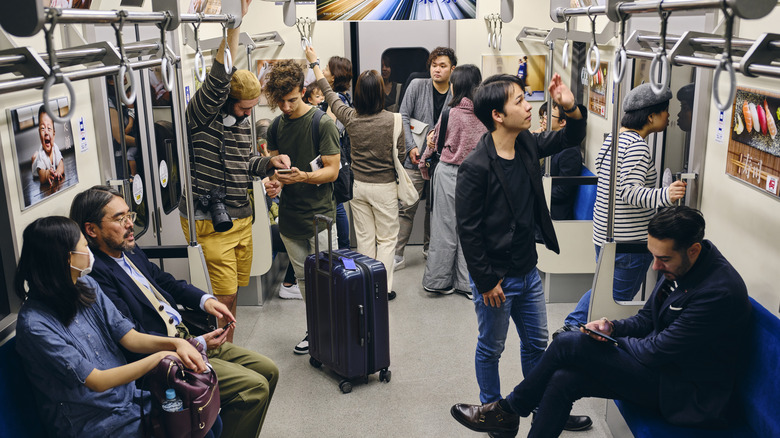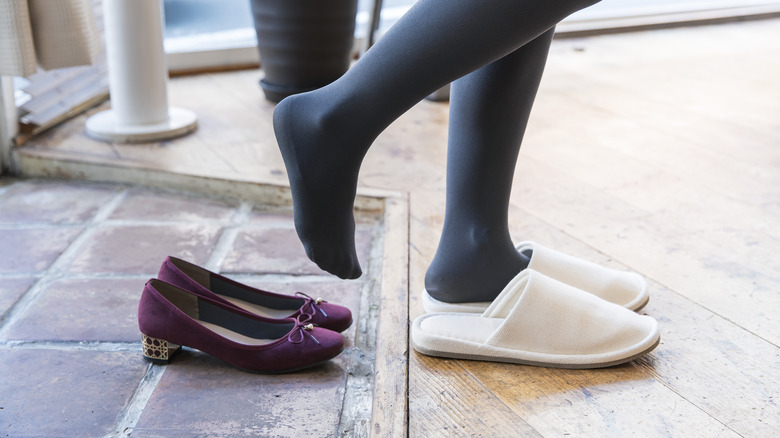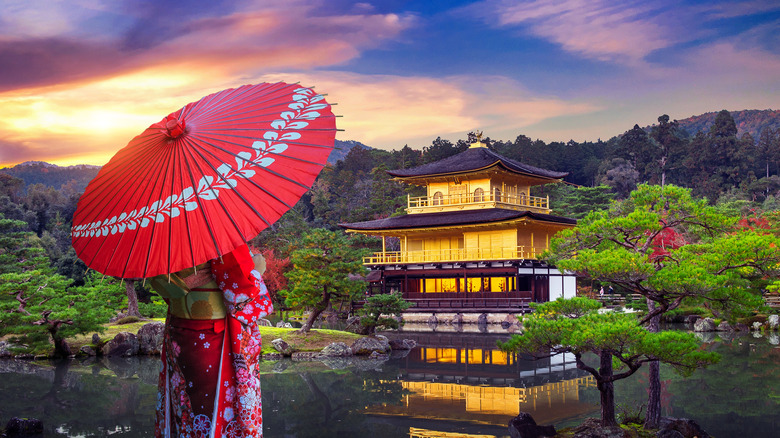Travel Guides International Travel Etiquette
Matt Berry
If you’re planning a trip to Japan, you should be familiar with two important Japanese concepts: omotenashi and omoiyari. In Japanese culture, omotenashi roughly translates to being courteous and hospitable, while omoiyari is the idea of being empathetic to the needs and comfort of others around you. Both of these important concepts help to inform the etiquette norms of Japanese culture, which is well-known for its politeness.
Unfortunately, the lack of omoiyari displayed by tourists in Japan has strained the traditional sense of omotenashi. In other words, Japanese residents have expressed frustration with the lack of decorum and generally rude behavior of international visitors. In recent years, tourism problems have been particularly bad in the historic city of Kyoto.
“Undoubtedly, the increase in tourists has had an influence on the daily lives of the citizens of Kyoto,” said Shuhei Akahoshi, head of the city’s Department of Conventions and Tourism, to the Sydney Morning Herald. “But we have several ongoing advertising campaigns that promote better manners among tourists.”
To avoid contributing to Japan’s “tourism pollution,” as residents of Kyoto have referred to it, visitors should familiarize themselves with the country’s cultural norms prior to arrival. Not only will this help prevent any faux pas, but a little knowledge can also lead to a more immersive, fulfilling experience. In Japan, a little omoiyari helps preserve omotenashi.
Etiquette in public spaces

Richlegg/Getty Images
One of the best examples of omoiyari — and one of the most noticeable cultural norms of Japan — is the relative quiet in public spaces. Japanese culture puts a lot of emphasis on living harmoniously as a group, and one way that’s expressed is a level of demureness when speaking in public spaces. You may notice a distinguishable quietness while riding the metro or shopping in a store.
But let’s be clear. Tokyo and other cities aren’t silent, but you won’t typically hear someone speaking loudly on their cell phone or groups of people talking super loud. It’s a truly unique norm to Japan and altogether pleasant. We’d suggest enjoying it and participating in the harmony. Many Japanese won’t answer the phone while on the bus or train, so we’d recommend doing the same.
Overall, you just don’t want to be that loud, abrasive tourist that forgets not everyone’s on vacation or sightseeing. And there’s nothing wrong with being happy and inquisitive, but the Japanese are very respectful with regard to public spaces. These spaces are for everyone to enjoy and feel comfortable in.
If you are too loud, don’t be surprised if someone mentions it. It’s not considered impolite to ask someone to speak more quietly. In fact, it’s considered a public service. We should mention that this sensibility is pretty much only applicable to the daytime. After the sun sets, Japanese nightlife can be pretty loud.
Etiquette in private spaces

Maruco/Getty Images
There are also pretty important etiquette norms to know for private spaces and more intimate situations, such as visiting someone’s home. Aside from bowing, removing your shoes may be one of Japan’s most well-known cultural practices. In Japan, there’s an emphasis on dividing soto (outside) from uchi (inside), and removing your shoes is an act that expresses this demarcation.
Along with removing your shoes before entering someone’s home, you’ll typically also remove them before entering a traditional restaurant, a ryokan (a traditional Japanese inn), a public hot spring, and other places. You may not know what establishments expect you to remove your shoes, but you can typically tell by looking at the entrance, or genkan. And someone will typically offer you indoor slippers, which is always a pretty foolproof way to know.
Lastly, there is no tipping in Japan. This is a pretty common faux pas, but you should understand why there’s no tipping. Although you may think you’re being generous, tipping someone can be considered insulting. In the spirit of omotenashi, showing hospitality is the responsibility of the host. When you tip, you’re inferring that the host could’ve done better, and you’re now financially incentivizing them to do so. The one exception is for tour guides, as their income may largely rely on tips, which is the exception and not the norm in Japan.

